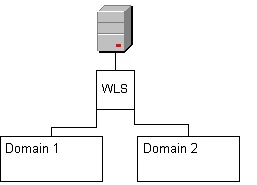Oracle WebLogic Server 12c Advanced Administrator II
Here you have the best Oracle 1z0-134 practice exam questions
- You have 92 total questions to study from
- Each page has 5 questions, making a total of 19 pages
- You can navigate through the pages using the buttons at the bottom
- This questions were last updated on October 22, 2025
- This site is not affiliated with or endorsed by Oracle.
